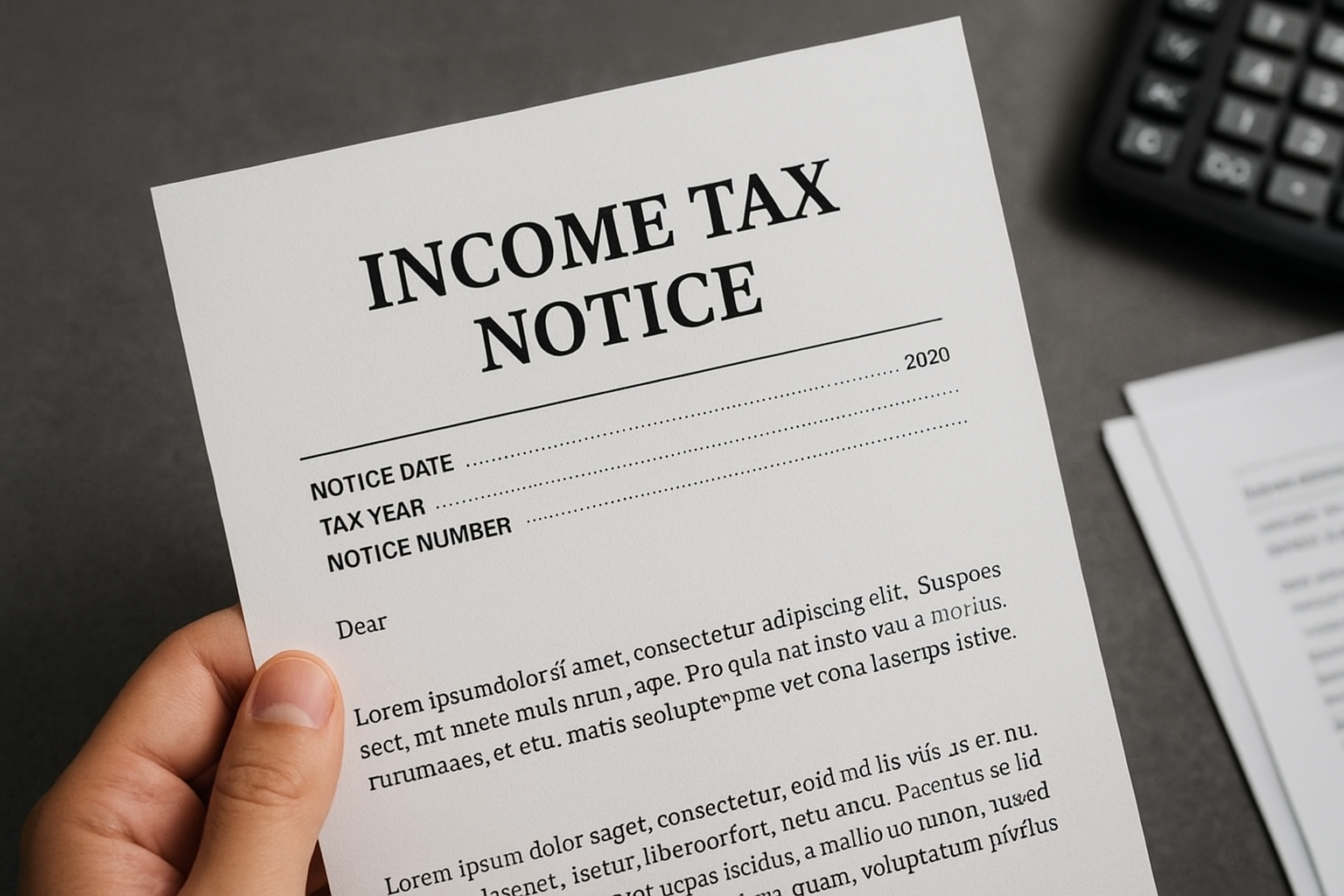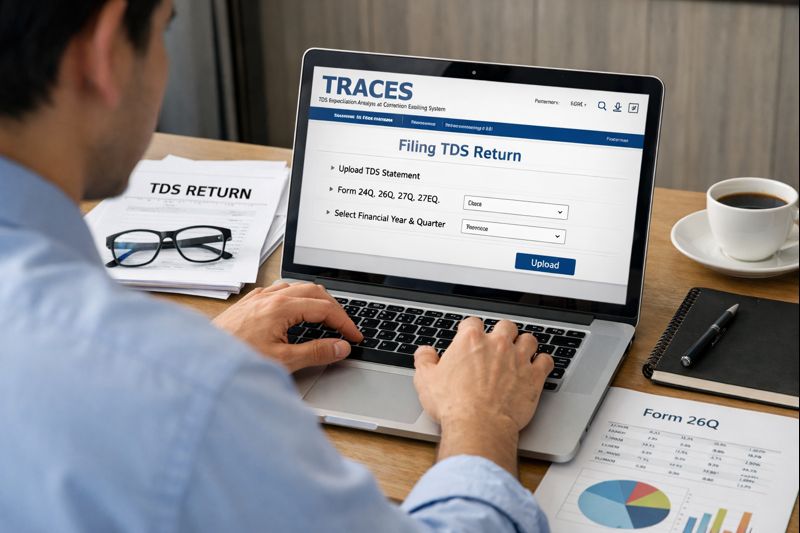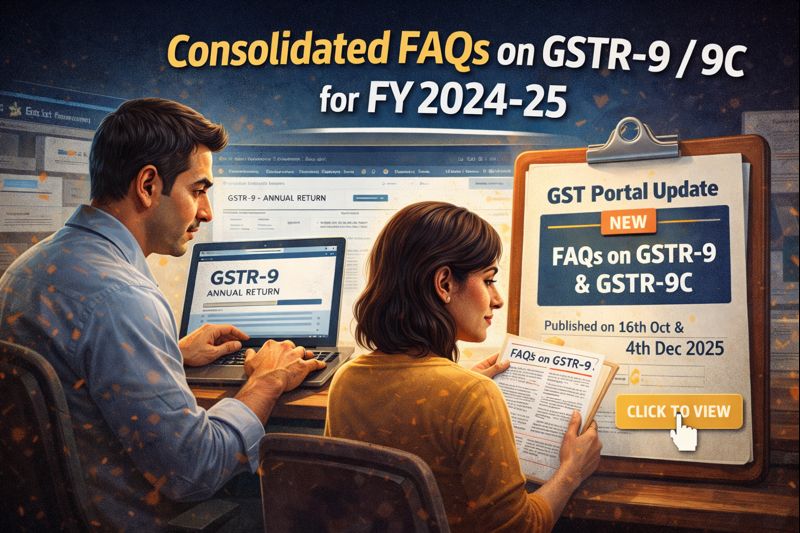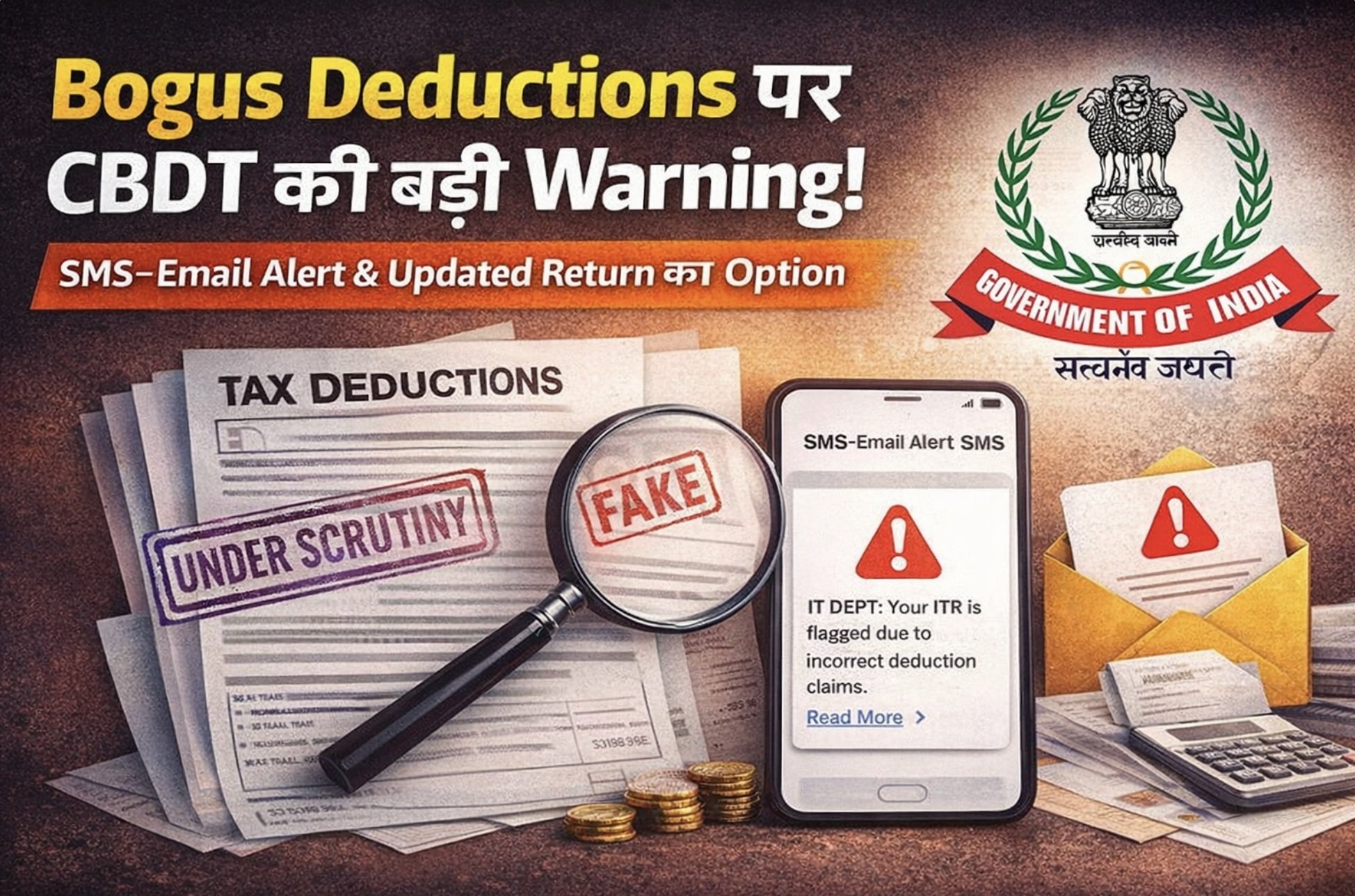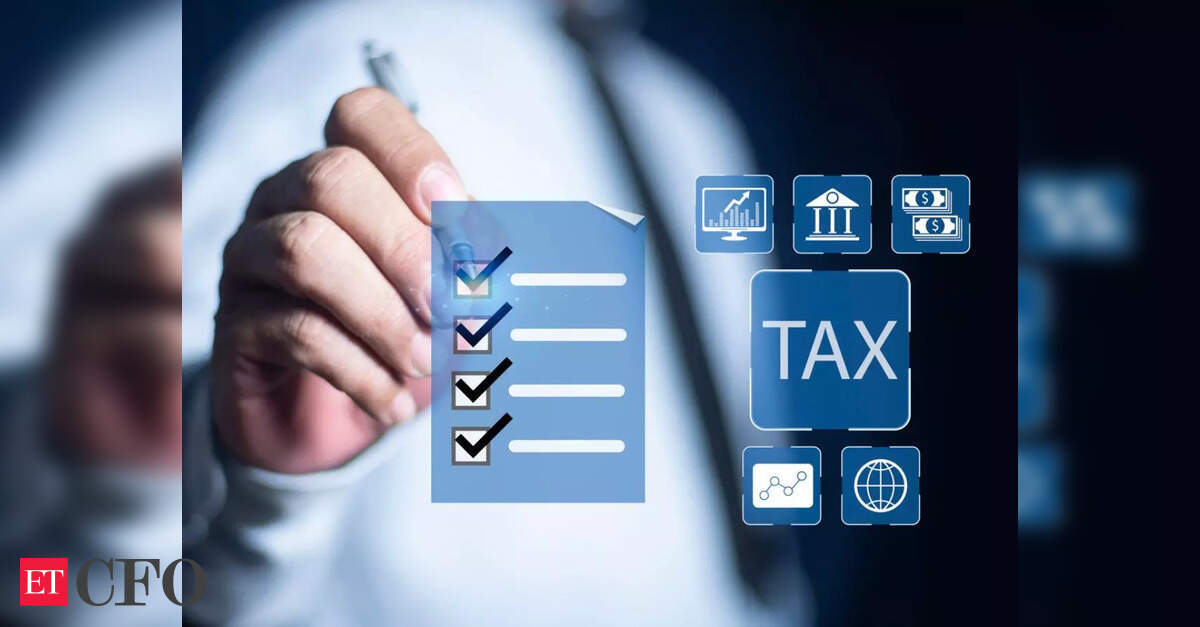Filing your Income Tax Return (ITR) is more than a compliance task—it impacts your financial credibility, refund eligibility, and legal standing. Unfortunately, many taxpayers make avoidable errors while filing their returns, leading to defective filings, penalties, or missed benefits.
Below is a detailed guide to help you avoid the most common ITR filing mistakes.
1. Choosing the Wrong ITR Form
Each ITR form is designed for a specific category of taxpayers and types of income.
For example, ITR-1 is meant only for resident individuals with income from salary, one house property, LTCG from sale of listed shares u/s 112A upto 1.25 Lakhs and other sources, provided total income does not exceed ₹50 lakh and there are no other capital gains or foreign income. Filing ITR-1 when you actually have capital gains, foreign income, or are a director in a company would make your return invalid. The Income Tax Department may treat it as defective under Section 139(9), and you may be required to file a revised return using the correct form, delaying the process and possibly attracting scrutiny.
2. Incorrect Determination of Residential Status
Many individuals, especially NRIs and those frequently traveling abroad, often misclassify their residential status. This leads to incorrect reporting of global income. As per Section 6 of the Income Tax Act, factors like the number of days spent in India during the current and preceding years determine your residential status. A person might believe they are an NRI but may actually qualify as a resident, making global income taxable. Errors in this classification can result in significant tax implications and interest liability.
3. Outdated Personal Details
Failing to update your contact details such as email address, mobile number, or residential address in the income tax portal can lead to serious issues. Tax refunds may get delayed, and you may miss important notices or updates from the Income Tax Department. Additionally, if your bank KYC is outdated, refund credits can fail. Always ensure your personal details are current across both the Income Tax portal and linked bank accounts.
4. Missing the Filing Deadline
Many taxpayers either procrastinate or underestimate the importance of filing their ITR by the due date, which is generally 31st July for individual taxpayers not subject to audit. Filing late attracts a penalty under Section 234F, interest on tax dues under Sections 234A, 234B, and 234C, and the inability to carry forward certain losses like house property loss or capital loss. Delayed filing also raises the chance of scrutiny.
5. Claiming Fake or Unsupported Deductions
Claiming deductions without actual investments or proof, such as fake LIC receipts or forged rent agreements for HRA, may lead to scrutiny or penalty under anti-abuse provisions. The Income Tax Department may ask for documentation during assessment or scrutiny. If you fail to produce genuine proof, the deduction will be disallowed, and you may be penalized for misreporting income under Section 270A.
6. Not Opting for the Correct Tax Regime
From FY 2020–21 onwards, taxpayers can choose between the old regime (with deductions/exemptions) and the new regime (lower rates without exemptions). Taxpayers often make the mistake of choosing a regime without actually comparing the outcomes. If you opt for the new regime but have already made significant tax-saving investments, you may end up paying more tax than necessary.
7. Ignoring Form 26AS, AIS & TIS
Form 26AS, the Annual Information Statement (AIS), and the Taxpayer Information Summary (TIS) summarize your reported income, tax deducted at source (TDS), and other financial transactions. Mismatches between these and your ITR can trigger tax notices.
For example, if your Form 26AS shows an FD interest of ₹50,000 and you don’t report it, the department will raise a red flag. Always reconcile your returns with these documents before filing.
8. Not E-Verifying the ITR, Nor Send Hard copy of ITR V to IT department
Filing your ITR is incomplete without e-verification. If you do not verify your return within 30 days, it will be treated as not filed, even if you submitted it. This means you’ll have to redo the entire process, and if the deadline has passed, you may lose the opportunity to file altogether or incur a late filing fee. E-verification can be done quickly using Aadhaar OTP, Net Banking, or a Digital Signature Certificate (DSC). In case you are not able to E verify then send ITR V acknowledgment to Address given on it.
9. Mismatch of Turnover in GST and ITR
For business owners, discrepancies between turnover declared in GST returns (GSTR-1, GSTR-3B) and ITR can invite scrutiny. Suppose you show a turnover of ₹60 lakh in GST but only ₹40 lakh in ITR—the mismatch may prompt both income tax and GST authorities to initiate audits or send notices. Proper reconciliation between books, GST returns, and ITR is critical to avoid compliance issues.
10. Not Validating Bank Accounts
Income tax refunds are only processed to pre-validated bank accounts. If the account where you expect the refund is not validated on the e-filing portal, the refund will fail, and you’ll need to re-initiate the validation and refund process, leading to delays. Always check the status of your bank accounts under the “Profile” section on the portal before filing.

11. Not Reporting Losses Properly
Losses such as short-term capital loss, long-term capital loss, or house property loss must be reported accurately and within the due date to be eligible for carry forward. If you miss the deadline or fail to disclose them in the correct schedule, you lose the ability to offset them against future profits, resulting in higher tax outgo in subsequent years.
12. Non-Reporting of Crypto Transactions
Profits from trading in cryptocurrencies are taxed at a flat 30% under the new regime, with no deductions allowed other than the cost of acquisition. Since exchanges are now required to deduct TDS under Section 194S, the ITD tracks these transactions closely. Failing to report crypto gains or airdrops can lead to serious compliance issues and hefty penalties.
13. Ignoring Forms Like 10E, 10IE, 10-IEA
Certain claims, like relief for salary arrears or opting for the new tax regime, require filing specific forms—Form 10E and Form 10IE/10-IEA respectively. If you forget to file these forms, your relief claim or regime selection may be rejected even if correctly mentioned in your ITR, which can significantly increase your tax liability.
14. Non-Reporting of Interest Income
Interest from savings accounts, fixed deposits (FDs), and recurring deposits (RDs) is fully taxable, but many individuals forget to include this under “Income from Other Sources.” Banks report interest income to the ITD, and omission can result in mismatch notices. Always collect your annual interest summary from the bank or refer to Form 26AS and AIS before filing.
15. Choosing Pay Now Instead of Pay Later Option
When using the Income Tax portal for return filing, choosing the “Pay Now” option before calculating the final tax liability can lead to incorrect payments—either excess or shortfall. It is always advisable to finalize the ITR computation first, then pay self-assessment tax (if any) based on accurate figures, and finally submit the return.
16. Hiring Unqualified or Cheap Consultants
Filing through inexperienced agents, especially during tax season, may save money in the short term but can lead to costly errors like using the wrong ITR form or claiming ineligible deductions. Errors by unqualified preparers often result in tax notices, penalties, or blocked refunds. It is always safer to engage qualified professionals such as Chartered Accountants.
You can contact team of Tax Experts to file Your ITR at 9150010300 or visit www.legalsahayak.com
17. Ignoring Section 139 (6th & 7th Proviso)
Even if your income is below the taxable limit, you must file ITR if you meet certain financial thresholds—such as depositing over ₹1 crore in a bank account, spending over ₹2 lakh on foreign travel, or paying more than ₹1 lakh in electricity bills, Deposited 50 Lakh or more in Saving Bank account, you have Business Turnover more than 60 Lakh or Professional receipts more than 10 Lakh, TDS deducted is more Than Rs.25000 (Rs.50000 in case of senior citizens), Beneficiary or Signatory in foreign assets or bank accounts etc. Failing to file in these cases may be treated as non-compliance and can attract penalties.
18. Not Maintaining Books of Accounts
Freelancers, consultants, and small business owners are often unaware that they are required to maintain books of accounts under Rule 6F. This includes ledgers, cash books, invoices, and expense vouchers. Not maintaining proper records can lead to disallowance of expenses, estimation of income by the Assessing Officer, and higher tax liability.
19. Ignoring ITR Intimation (Section 143(1))
After processing your ITR, the Income Tax Department issues an intimation under Section 143(1), stating whether your return has been accepted as-is or adjusted. Many people ignore this, missing crucial updates like additional tax demand, refund amount mismatch, or disallowed deductions. Always download and review this document from your e-filing dashboard.
20. Not Reviewing Filed Return Carefully
Even when returns are prepared by professionals, you must review the ITR before submission. Mistakes in PAN, bank account numbers, income entries, or deduction claims can lead to refund failure or tax notices. Review the draft return PDF or XML file to ensure accuracy before final submission.
21. Not Maintaining Documentation
All documents used for ITR filing—such as Form 16, rent receipts, investment proofs, donation receipts, bank statements, and loan certificates—must be kept for at least 8 years. These may be required during assessments, refunds, or scrutiny. The ITR-V acknowledgment, in particular, is essential proof of filing.
22. Not Paying Advance Tax or Self-Assessment Tax
If your total tax liability (after TDS) exceeds ₹10,000, you are required to pay advance tax in four instalments. Failing to do so results in interest under Sections 234B and 234C. Many salaried individuals with additional income (like rent or interest) miss this, leading to interest penalties.
23. Not Linking PAN with Aadhaar
The Income Tax Department has made it mandatory to link PAN with Aadhaar. A PAN not linked becomes inoperative, and returns filed using it are considered invalid. Refunds will not be processed, and you cannot file new returns. Linking must be done on the e-filing portal before the prescribed deadline.
24. Not Reporting Income from Multiple Employers
If you switched jobs during the financial year, it’s important to report income from all employers. Failing to include income from your previous employer leads to under-reporting, higher tax liability, and possible notices. Combine all Form 16s while filing your return.
25. Not Checking All Bank Accounts
Refunds and other communications often depend on the correct bank details being provided. If you haven’t reviewed your list of bank accounts on the e-filing portal, and your primary account is not pre-validated, refunds may fail. Validate all active accounts and designate the correct one for refunds.
26. Not Reporting Exempt Income
Many taxpayers ignore exempt incomes such as interest from PPF, maturity of life insurance, or agricultural income. While these are not taxable, they must be disclosed in the ITR for transparency. Non-disclosure may raise red flags during processing or scrutiny.
27. Deemed to be Let-Out Property Not Shown
If you own more than one house, only two can be treated as self-occupied; the rest are deemed to be let out—even if not actually rented—and not showing them leads to incorrect income computation. Notional rent must be offered to tax on such properties.
28. Forgetting to Disclose Foreign Assets
If you are a resident and own foreign bank accounts, shares, or properties, these must be disclosed in your ITR. Non-disclosure, even unintentionally, can lead to penalties under the Black Money Act. This disclosure is mandatory even if the assets don’t generate income.
Visit www.cagurujiclasses.com for practical courses


